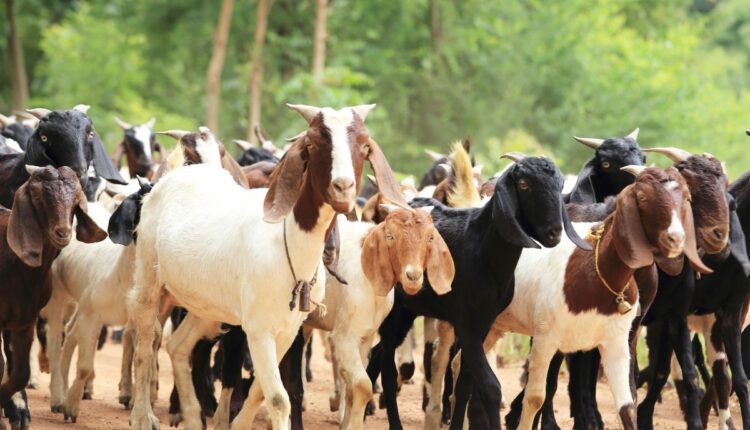Digambar Dattatreya Gaikwad’s unique initiative: Improvement in local goat farming
Digambar Dattatreya Gaikwad is a progressive farmer who has taken the initiative to bring about a change in goat farming with his unique thinking and actions. His specialty is to cross breed Indian goats with foreign breeds, so that local farmers can get more fertile mutton and better weight goats. Gaikwad explains that he has created new breeds by crossing South African Boer goats with the Indian Osmanabadi breed, which gain up to 30 kg in six months. This is a major improvement compared to traditional Indian goats, which can give more economic benefits to farmers.
He explained how his initiative increases the immunity of goats and produces good quality mutton at low cost. According to Gaikwad, with this model, farmers can increase their income as well as keep their livestock healthy. Additionally, they also raise Desi Gavran chickens, which gain about 1.5 kg of weight in three months.
New technology and challenges:
Digambar Dattatreya started this process in 2016, and since then he has connected many farmers with this new technology. However, the idea of cross breeding in goat farming has been new and challenging for the local farmers. Gaikwad said that initially he faced difficulties in convincing the farmers and explaining the benefits of new breeds. Nevertheless, his hard work and experimentation eventually found acceptance in the local farming community.
Government schemes and support:
Gaikwad said that there are special government schemes and subsidies in goat farming for those farmers who come from economically weaker sections. However, Gaikwad personally has not received any special support as he falls in the general category. He hoped that the government can further empower the position of farmers by giving more support in this sector.
Shared efforts and future plans:
Digambar Dattatreya has presented this business as a self-controlled business for the farmers. He believes that in goat farming, the price of mutton is decided by the farmers themselves, which strengthens their economic control. He says that this sector is still unorganized, but it has a lot of potential. Gaikwad emphasized the need to organize it like other agricultural businesses like grape, pomegranate, and banana cultivation.
Gaikwad and his partners are now working together to connect and benefit more farmers in this sector. Their aim is to make goat farming an organized business and farmers get full benefit from it.
Additional information:
Gaikwad’s focus now is to spread this model outside Maharashtra by connecting more farmers. They organize training and workshops for farmers who want to learn advanced methods of goat farming. Apart from this, they plan to set up a large-scale cross breeding unit, so that farmers can get good quality livestock at low cost.
Future Prospects:
Gaikwad’s approach to goat farming is not only empowering farmers economically but is also moving towards turning it into an organised business. In future, if the government pays more attention to this sector and organises it, it will definitely strengthen the rural economy and become a sustainable source of income for farmers.
Cross breeding of goats in India: A source of economic profit
The use of cross-breeding of goats in India is increasing rapidly to make goat farming more profitable. This process ensures better production by cross-breeding with foreign breeds while maintaining the characteristics of the native breeds. For example, South African Boer goats are being crossbred with Indian breeds, such as Osmanabadi and Beetal, to obtain heavier weight and faster growth rate. According to data, such cross breeding has shown an increase in productivity by up to 30-35%. In the year 2021, a population of about 148 million goats was recorded in India, out of which about 10-12% of goat production has been affected by the process of hybridization in goat rearing. This has become an important initiative for agricultural scientists and livestock farmers, so that farmers can get more economic benefits.
Contact details: If farmers want to share information or experiences related to farming with us, then they can do this by calling us on the phone number 9599273766 or by writing an email to [email protected] or by sending your recording. Through Kisan of India, we will convey your message to the people, because we believe that if the farmers are advanced then the country is happy.



